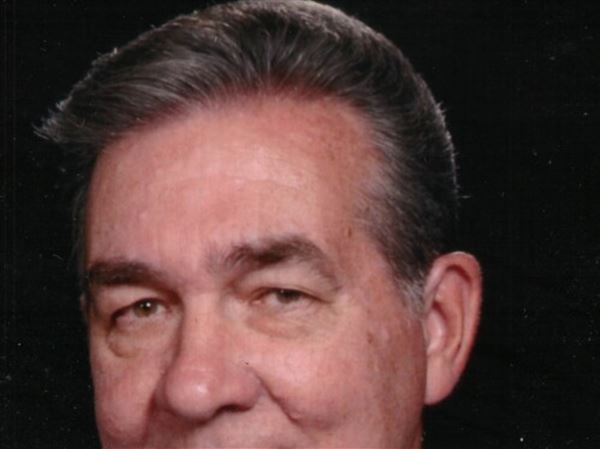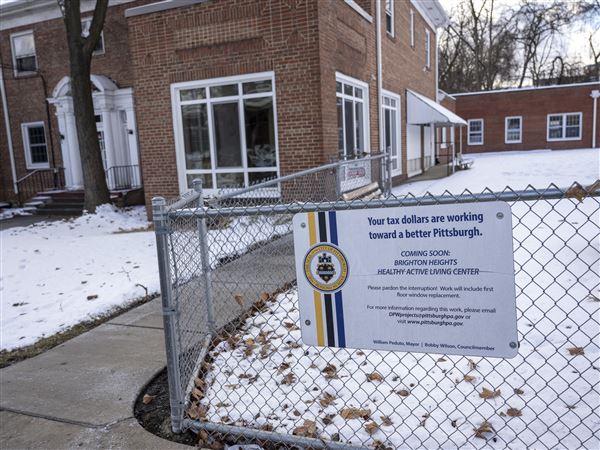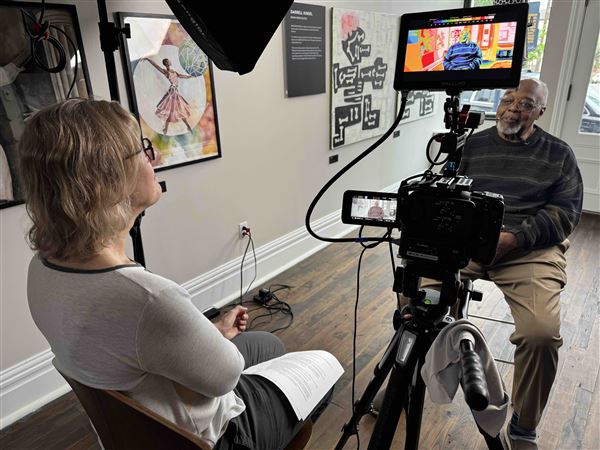
I can't remember exactly how the assignment came about or where it came from, but it was a doozy: Profile Jeffrey A. Romoff, the president of the University of Pittsburgh Medical Center.
Mr. Romoff was someone who had appeared in the paper a great deal over the years as UPMC grew into the region's biggest employer, but he was a man about whom little was known. I didn't even know he was president until I got the assignment.
It's one of those stories that carries with it the enormously heavy baggage of endless research, reading about unfamiliar topics, difficult interviews, tough writing and lots of input from editors. My five-part series "Empire Building" ran in the Post-Gazette last week.
On big projects such as this with so much information to find, synthesize, report and write, the first decision is where to start. I diddled around on the Internet that first day. It was a gold mine for interesting information such as the Romoff uncle who was married to a Hollywood starlet, photographs of his fourth wife, and the names and e-mail addresses of the more than 300 people in his high school senior class.
The next day, I began the long process of reading everything the Post-Gazette and other newspapers, magazines and university publications had written about him and UPMC for the past three decades.
Usually, when reporters have a long-term project, they juggle shorter stories at the same time. It's rare for someone to be left free to work just on a project. In my case, I worked on a murder trial, the Episcopal Church, obituaries and scores of other assignments -- all told, more than 100 other stories during the 16 months I reported and wrote the Romoff/UPMC series.
Work on the project moved forward incrementally: compiling a list of people to talk to, starting files, familiarizing myself with medical economics, checking courthouse records.
It was immediately clear that it would not be easy finding people willing to talk about Mr. Romoff. Their reasons varied: Physicians were worried about losing their jobs; hospital and business executives were concerned about having to see him in social settings; former UPMC employees didn't want to jeopardize their chances of finding work again in Pittsburgh. Many people would not return my calls. Others said they would talk but only off the record. Still others wouldn't talk to me but did give me the names of other people who might.
Slowly, I gathered a file box full of research. People outside of newspapers often think that reporters are only interested in "bad" news or "dirt." That's just wrong. Besides, for this project, I needed all kinds of information, good, bad or indifferent.
I decided early on that the only way to tell Mr. Romoff's story was in the context of UPMC's growth, because he had played such a crucial role in its success. That meant learning about its metamorphosis over the years, learning about managed care, learning about health insurance. The main thing I learned was that I didn't know much.
I wanted to do the bulk of my research before requesting interviews with Mr. Romoff. I didn't want to waste his time -- or mine -- with questions I could get answered elsewhere.
There were four interviews with Mr. Romoff over a period of about three weeks in late spring, for a total of six hours. He made clear from the outset that he only agreed to be interviewed at the request of his board of directors, that he would answer questions only about UPMC and that he wouldn't allow me to see any part of his professional or personal life outside his office.
But he did talk about himself, about his upbringing and about some of the people who influenced his life. He has a surprisingly loud laugh -- much of his humor was directed at himself -- and at times even seemed to enjoy the questioning. I would have liked a fifth meeting but he declined.
When it came time to write the stories, I realized just how much more reporting I needed to do. The stories had to be readable -- medical administrators, even Mr. Romoff, are not intrinsically interesting. Deciding what to leave out was often harder than deciding what to include. My quandaries were eased and holes in the stories plugged by Tom Birdsong, the project's editor, who brought a fresh perspective to the series. He told anyone who asked, "Well, it isn't Paris Hilton's sex life but if you stick with it, it's pretty interesting."
The bottom line was to provide readers with a look behind the scenes of the region's biggest employer and its leader. If we accomplished that, it was worth the effort.
First Published: January 1, 2006, 5:00 a.m.
















